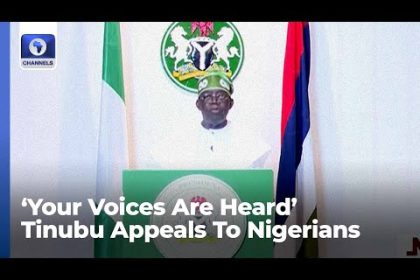
During Nigeria’s 64th Independence Day Anniversary on October 1, 2024, the President said the situation of the country at the time he came into office necessitated that the country choose between “reform for progress and prosperity or carry on business-as-usual and collapse”.
Tinubu said his administration decided to reform Nigeria’s political economy and defence architecture for the nation to survive.
The President also saluted the doggedness of the Nigerian people, saying the country has survived crises that disintegrated other nations.
Critics have faulted Tinubu’s twin policies of petrol subsidy removal and unification of the foreign exchange rates which many Nigerians believed were responsible for the unimaginable inflation and soaring living and energy costs in the country. Thousands of Nigerians have stormed the streets in recent times to protest what they described as an unbearable economic situation in the country.
The former Lagos governor sympathised with Nigerians over the economic hardship his reforms might have caused whilst he assured them that his administration have been busy implementing measures to bring down the high cost of living.
During his second Independence Day Anniversary Broadcast on Tuesday, Tinubu pleaded for more patience and time, saying his administration is retooling its economic policies for the good of common Nigerians.
He said, “Dear compatriots, our independence anniversary gives us another chance to reflect on how far we have gone in our journey to nation-building and to renew our commitment to building a better nation that will serve present and future generations of Nigerians.
“While we celebrate the progress we have made as a people in the last sixty-four years, we must also recognise some of our missed opportunities and mistakes of the past. If we are to become one of the greatest nations on earth, as God has destined us to be, our mistakes must not be allowed to follow us into the future.
“My administration took over the leadership of our country 16 months ago at a critical juncture. The economy faced many headwinds, and our physical security was highly impaired.
“We found ourselves at a dizzying crossroads, where we must choose between two paths: reform for progress and prosperity or carry on business-as-usual and collapse. We decided to reform our political economy and defence architecture.”

